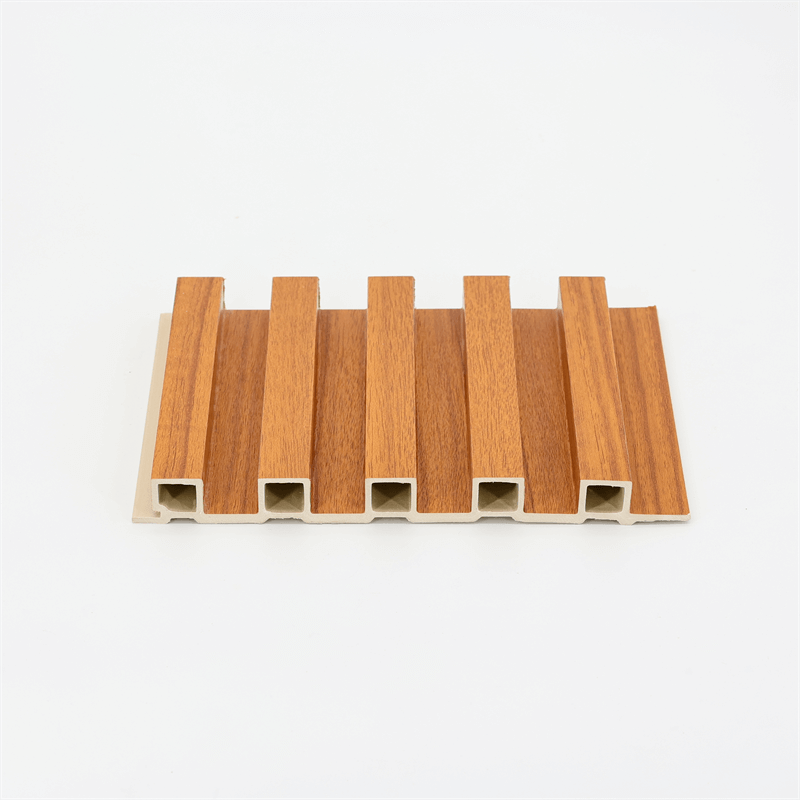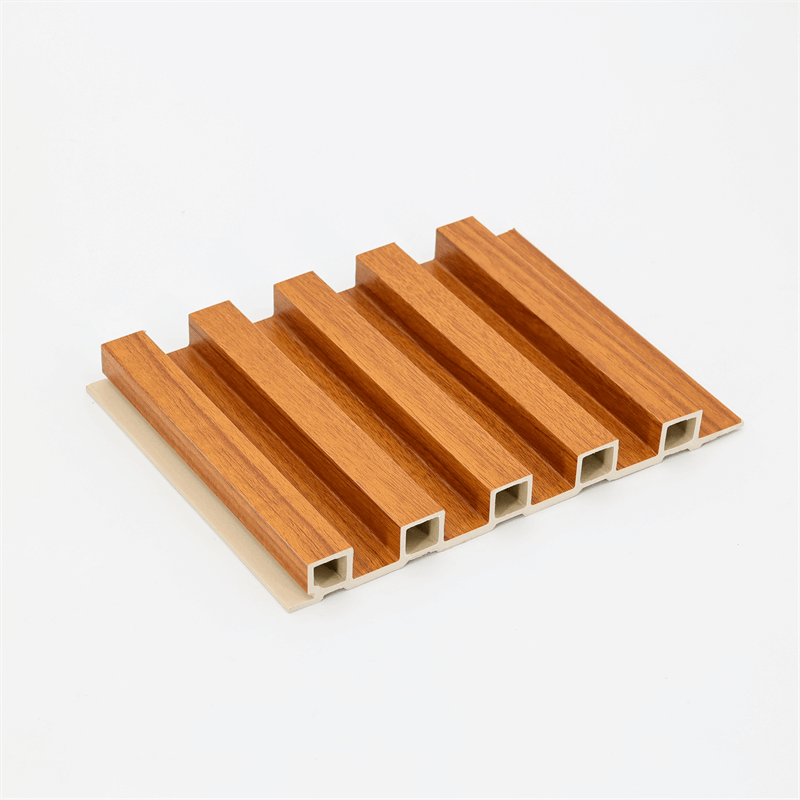Commercial spaces require design solutions that not only enhance aesthetics but also provide durability, functionality, and ease of maintenance.
In recent years, wood-plastic composite (WPC) wall panels have gained popularity as a versatile material for transforming commercial interiors.
These panels offer a wide range of design possibilities, coupled with exceptional performance characteristics, making them an ideal choice for various commercial applications.
This essay explores the versatility of WPC wall panels in commercial spaces, delving into their design options, functional applications, environmental benefits, and cost-effectiveness.
I. Design Options and Aesthetic Appeal
WPC wall panels offer a plethora of design options and aesthetic appeal, enabling commercial spaces to stand out and make a lasting impression.
The panels can be customized to suit different architectural styles, design themes, and branding requirements, allowing businesses to create a unique identity and atmosphere.
Design Versatility: WPC wall panels come in a variety of colors, patterns, and textures, providing designers with endless possibilities.
From sleek and modern designs to rustic and natural looks, WPC panels can be tailored to meet the specific design vision of commercial spaces.
The panels can also be cut into various shapes and sizes, allowing for creative installations, such as feature walls, signage, or decorative accents.
Mimicking Natural Materials: WPC panels are designed to mimic the appearance of natural materials, such as wood, stone, or brick.
Advanced printing and embossing techniques enable the panels to replicate the intricate details and textures of these materials, providing a realistic and visually appealing alternative.
This ability to mimic natural materials allows businesses to create a warm and inviting ambiance without the maintenance and cost associated with traditional materials.
Branding and Customization: WPC wall panels can be customized with corporate logos, branding elements, or specific design motifs, enabling businesses to reinforce their brand identity.
Whether it’s incorporating company colors, typography, or unique graphics, WPC panels provide a versatile canvas for showcasing brand personality and creating a cohesive visual experience throughout the commercial space.
II. Functional Applications
Beyond their aesthetic appeal, WPC wall panels offer functional applications that enhance the performance and functionality of commercial spaces.
These panels can be utilized in various ways to address specific needs and requirements.
Acoustic Control: Noise control is a critical consideration in commercial spaces, such as offices, conference rooms, or restaurants.
WPC wall panels can incorporate sound-absorbing properties, helping to minimize echo and reverberation, and create a more pleasant and productive environment.
By reducing noise distractions, these panels contribute to improved acoustics and overall comfort in the workspace.
Thermal Insulation: WPC wall panels can provide thermal insulation properties, helping to regulate temperature and reduce energy consumption.
The composite composition of the panels acts as a barrier against heat transfer, ensuring a comfortable indoor environment and potentially lowering heating and cooling costs.
This thermal insulation feature is particularly advantageous in commercial spaces where temperature control is crucial, such as retail stores, hotels, or restaurants.
Durability and Impact Resistance: Commercial spaces often experience heavy traffic and frequent usage, which can lead to wear and tear on interior surfaces.
WPC wall panels exhibit exceptional durability and impact resistance, making them suitable for high-traffic areas such as lobbies, corridors, or waiting rooms.
The panels can withstand accidental impacts, scratches, and dents, maintaining their aesthetic appeal even in demanding environments.
Moisture and Stain Resistance: WPC panels are inherently resistant to moisture, making them suitable for spaces where spills or high humidity are common, such as restrooms or food service areas.
The panels do not absorb moisture, preventing issues such as swelling, rot, or mold growth.
Additionally, their smooth surface makes them easy to clean and resistant to stains, reducing maintenance efforts in commercial spaces.
III. Environmental Benefits
WPC wall panels offer environmental benefits that align with sustainable design practices, making them a responsible choice for commercial spaces.
These panels contribute to green building certifications and help businesses reduce their environmental footprint.
Recycled Materials: WPC panels are composed of a blend of wood fibers or flour and thermoplastic polymers, often including recycled content.
The utilization of recycled materials reduces the demand for virgin resources and diverts waste from landfills.
By choosing WPC panels, businesses contribute to the circular economy and support sustainable material practices.
Low VOC Emissions: Volatile Organic Compounds (VOCs) are chemicals that can be emitted from certain building materials and negatively impact indoor air quality.
WPC wall panels have low VOC emissions, ensuring a healthier and safer environment for employees, customers, and visitors.
This feature is particularly crucial in commercial spaces where the health and well-being of occupants are a priority.
Long Lifespan and Reduced Waste: The durability of WPC wall panels extends their lifespan, reducing the need for frequent replacements or renovations.
This longevity reduces waste generation and minimizes the environmental impact associated with material disposal.
By choosing a long-lasting material like WPC, businesses contribute to the reduction of construction and demolition waste.
IV. Cost-Effectiveness
In addition to their design versatility and functional applications, WPC wall panels offer cost-effectiveness that benefits businesses in the long run.
The initial investment in WPC panels can translate into significant savings over time.
Installation Efficiency: WPC wall panels are designed for ease of installation, saving time and labor costs during the construction or renovation process.
The panels can be easily mounted on walls using a variety of installation methods, such as adhesive, screws, or clips.
Their lightweight nature and interlocking systems allow for quick and efficient installation, minimizing disruptions to business operations.
Low Maintenance Requirements: WPC panels have low maintenance requirements compared to traditional wall materials.
Unlike natural wood, they do not require staining, sealing, or regular repainting. The panels are resistant to moisture, stains, and pests, reducing the need for frequent cleaning or repairs.
This low maintenance feature results in long-term cost savings, as businesses can allocate resources to other operational needs.
Durability and Longevity: WPC wall panels are built to last, withstanding the challenges of commercial environments.
Their resistance to impacts, moisture, UV radiation, and temperature fluctuations ensures that they maintain their structural integrity and aesthetic appeal over time.
This durability eliminates the need for frequent replacements or renovations, reducing long-term costs associated with material and labor.
WPC wall panels offer a versatile and practical solution for commercial spaces, providing a balance of aesthetics, functionality, and cost-effectiveness.
With their design options, functional applications, environmental benefits, and long-term value, these panels empower businesses to create visually stunning and functional interiors that leave a lasting impression on customers and employees.
Whether it’s a retail store, office, hotel, or restaurant, WPC wall panels offer a transformative material that can elevate the design and performance of commercial spaces.
By choosing WPC, businesses make a smart investment that enhances their brand identity, improves sustainability, and contributes to a productive and welcoming environment.


